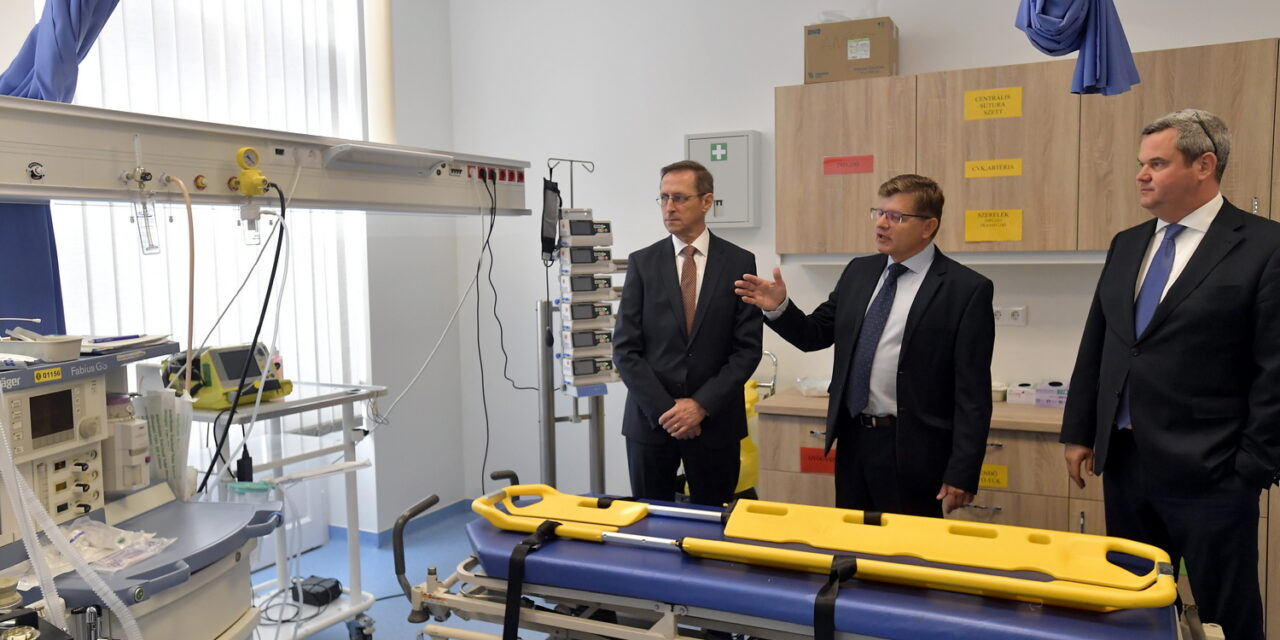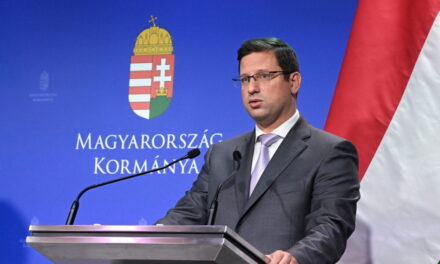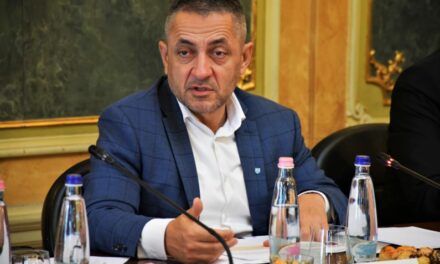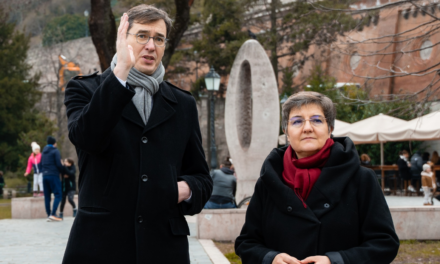Since the change of government in 2010, around HUF 30 billion has been allocated to the healthcare sector, and in this year's budget, HUF 3,200 billion will go to the sector, which is HUF 2 billion more than in 2010 - announced Finance Minister Mihály Varga. at the handover of the center.
Mihály Varga said at the dedication of the trauma center of the Szent János Centrumkórház in North Buda that the government took over the sector in 2010 with serious problems.
"Healthcare had to be turned upside down"
- he said, adding that infrastructural developments have begun, medical and professional wages have been settled, and investments in the domestic health industry have also started.
He revived it: the governments before 2010 withdrew HUF 600 billion from the sector, 16,000 hospital beds were eliminated, and "putting social sensitivity in parentheses", they wanted to make healthcare more and more a market player, the symbolic point of which was the introduction of the visit and daily fee. During this period, 3,000 doctors and 6,000 professionals left the healthcare sector.
According to Mihály Varga, the reason why the health administration is being held accountable today can be traced back to the time when a mass of professionals left the field, because their effects can still be felt to this day.
He emphasized that more than HUF 500 billion worth of improvements have been implemented in the health sector in the past period. 91 rural hospitals, 54 dispensaries, 107 ambulance stations were renovated, 23 new dispensaries and 41 new ambulance stations were created. In the framework of the Hungarian village program, more than 600 medical clinics could be built or renovated, and nearly seven billion forints were spent on the renovation of service apartments in 81 settlements, he explained.
"Whoever rejects these developments lives in another country"
- he said, adding: these investments required serious resources, but in order for the health sector to function safely, they were necessary.
A decades-long deficit had to be made up in the field of medical wages as well, however, there was a significant wage increase for both doctors and skilled workers
he highlighted.
Mihály Varga also touched on the healthcare developments in the capital, as he said: within the framework of the Healthy Budapest Program (EBP), launched in 2017, hospital developments in Budapest and the central region took place. The capital receives HUF 10 billion annually for these purposes.
The head of the ministry pointed out that
what is happening at the Szent János hospital is a decade-long process, the reconstruction of the old buildings, the renovation of the 32 specialist surgeries, the reconstruction of the Kútvölgyi út clinical block and the construction of the nursing home are a continuous challenge.
He emphasized that they can only continue these developments if the economy is in a state that allows the provision of resources.
The world economy, including the Hungarian one, is going through a difficult period. The energy crisis and the wartime sanctions have all affected the performance of the economy, but they can ensure the functioning of the economy by not backing down from the previous results - family and utility support, pension payments - said the minister.
Mihály Varga announced that despite the HUF 675 billion investment postponement, the government has room for maneuver, this year two thousand billion HUF investments will be implemented.
He said that the Hungarian economy will return to the growth path this year, the growth was already 1.5 percent in the first half of the year. The government expects economic growth of 3-3.5 percent, and they are working on how to rise above this level, he added.
"We can trust that the strengthening growth of the Hungarian economy can contribute to more and more extensive healthcare investments," Mihály Varga noted.
Péter Takács, the Health Secretary of the Ministry of the Interior, said: the state provided HUF 133 billion in government funds in the EBP, which was supplemented by the hospital renovation program, which began during the coronavirus epidemic, in the amount of nearly HUF 100 billion.
He said: he is proud that a total of 300,000 square meters have been renovated in the Szent János hospital so far, and he also congratulated the hospital management that patient care was continuous during the renovations.
Zsolt Ralovich, the general director of the Szent János Centrumkórház in North Buda, said about the investment, the reconstruction and modernization of the institution's trauma center began last November.
With the development, they "jumped decades forward in time",
which was very necessary, since the trauma center of Szent János hospital is one of the four trauma centers in the capital, the only one in Buda, he said. Its territorial care obligation exceeds 700,000 people, and it receives patients 24 hours a day from the entire Buda region and the western agglomeration. Last year, more than 60,000 patients were treated at the traumatology department of the hospital.
According to the Director General, the development of the targeted supply organization was not possible without renewing the technical content.
In traumatology, located in building 26, the rooms of the ambulance, deshock unit, small operating theaters, examiners, corridors, wards and waiting rooms were renovated. The patient reception building was renovated, triage and outpatient clinics were located here, the diagnostic block was unified, and an intensive department was created, he explained.
The elevators were renewed, and the guards and the operating theaters received new air-conditioning equipment, among others. The patient reception and the outpatient department have air conditioning.
According to the director general, the work did not end with this development. Work continues in building 26, all the wards on the first floor will be air-conditioned by next summer, and the complete modernization of the heating system at the Diós ark site is nearing completion. In addition, the reconstruction of the building housing the ophthalmology has also begun, he explained.
MTI
Cover photo: Minister of Finance Mihály Varga, Director General Zsolt Ralovich and Péter Takács, Secretary of State for Health of the Ministry of the Interior (bj) at the handover of the renovated and modernized trauma center of the Szent János Centrumkórház in North Buda on September 17, 2024.
MTI/Lajos Soós













